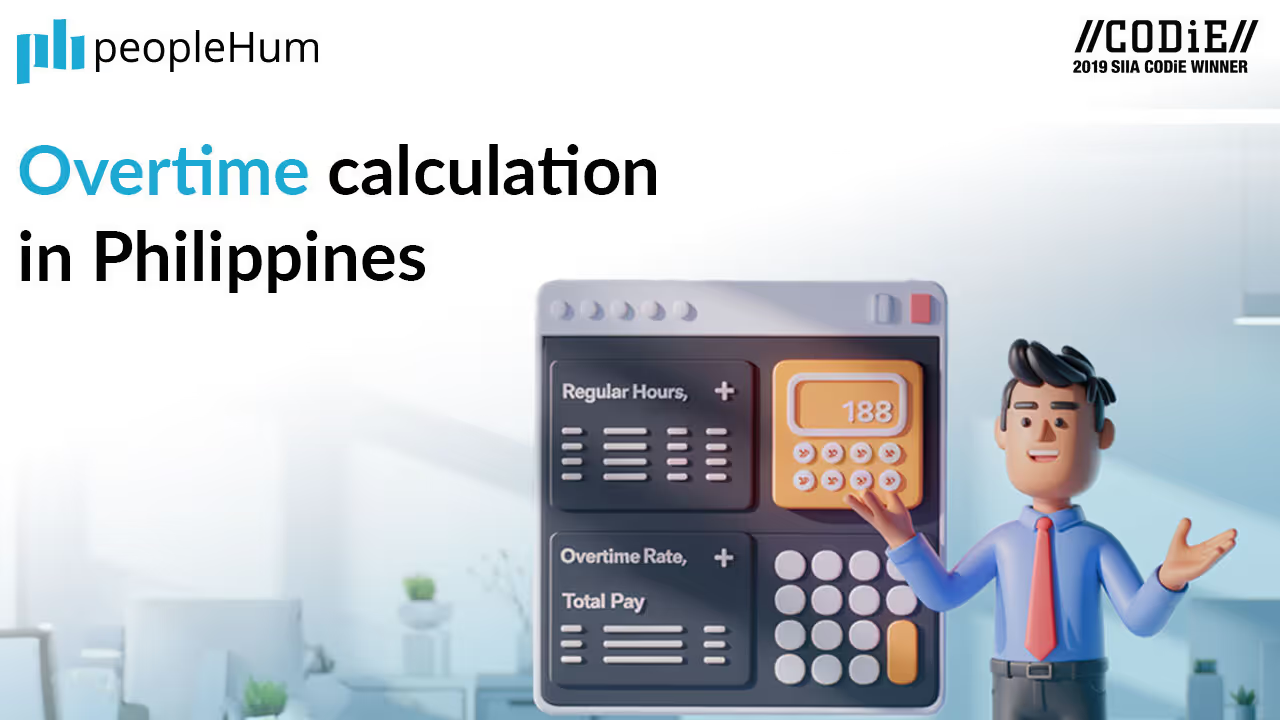The war for talent in the Philippines has transcended buzzword status to become a pressing business imperative—reshaping how companies attract, develop, and retain their most valuable asset: people. With the Philippine economy projected to grow by around 6.5% in 2025 and digital industries expanding rapidly, the demand for skilled professionals has soared to unprecedented levels. This surge has sparked intense competition, not just among local firms but also with multinational corporations and attractive overseas opportunities that have drawn nearly 10 million Filipinos abroad.
This talent crunch is felt across the archipelago. While Metro Manila continues to dominate as the primary talent hub, emerging economic centers such as Cebu, Davao, and Iloilo face distinctive challenges—from skills shortages to turnover rates exceeding 20% annually in critical sectors like BPO and technology. Coupled with an underemployment rate lingering at 14%, these figures highlight a widening gap between workforce supply and demand.
In this high-stakes landscape, HR leaders across the Philippines confront a vital question: how can companies effectively attract top talent and, more importantly, retain them in a culturally rich and fiercely competitive market? The solution lies in crafting thoughtful, multifaceted strategies that combine cutting-edge HR practices with a deep respect for Filipino values and regional nuances
The Philippine Talent War: A Landscape Marked by Rapid Growth and Unique Challenges
Recent statistics shed light on the magnitude of the challenge. The Philippines is among the fastest-growing economies in Southeast Asia, with a projected GDP growth rate of around 6.5% in 2025, fueled largely by services, manufacturing, and digital industries. At the same time, the Department of Labor and Employment reported that the country’s unemployment rate hovers around 4.5%, while underemployment remains a stubborn 14%, underscoring a skills mismatch that complicates recruitment efforts.
Local companies must contend with:
- Brain Drain and Overseas Opportunities: The allure of higher wages and improved working conditions abroad remains a pull factor for Filipino professionals. An estimated 10 million Overseas Filipino Workers (OFWs) contribute to this trend, creating a talent vacuum especially in healthcare, engineering, and IT.
- Regional Disparities: While Metro Manila remains a talent magnet, emerging regions like Cebu, Iloilo, and Davao face unique challenges—limited access to advanced training, fewer high-paying jobs, and the constant migration of skilled workers to the capital or abroad.
- The Rise of Remote Work: The COVID-19 pandemic accelerated digital transformation, with many companies adopting hybrid or fully remote models. While this expands the talent pool geographically, it also raises new challenges in employee engagement and retention.
- Industry-Specific Talent Scarcity: Tech startups and BPO companies often report difficulty filling specialized roles such as data scientists, cybersecurity experts, and cloud engineers, leading to wage inflation and intensified competition.
.avif)
Crafting an Employer Brand That Resonates Deeply with Filipino Professionals
In such a crowded market, the strength of your employer brand can be a decisive factor. Filipino professionals today are discerning—they seek employers who not only offer competitive compensation but who also embody values that align with their own.
An employer brand rooted in Filipino culture can create a powerful emotional connection. Values like pakikisama (camaraderie), bayanihan (community spirit), and respect for family are central to how many Filipinos view work and life. Companies that weave these into their brand narratives stand out.
Digital platforms have become vital. JobStreet and Kalibrr, among the most popular job portals, report that companies with well-crafted employer branding enjoy up to 50% higher application rates. Social media is also an essential tool—showcasing authentic employee testimonials, celebrating milestones, and promoting community engagement initiatives help bring your culture to life.
Moreover, in regional hubs, tailoring employer branding to local values and community narratives strengthens recruitment efforts. For example, highlighting Cebuano or Mindanaoan cultural events, or emphasizing community involvement, signals that your company respects and values its local workforce.
Career Development: The Cornerstone of Retention in the Philippines
Career stagnation is one of the top reasons Filipino employees leave their jobs. According to a LinkedIn Workforce Report, 45% of Filipino professionals cite lack of advancement opportunities as a key driver for job-hopping.
But career development is more than just promotions. Filipino employees value structured learning paths, access to skills upgrading, and mentorship programs that recognize their individual aspirations and challenges.
HR leaders who invest in clear career pathways see tangible returns. Companies that provide regular training and development programs report up to 34% lower turnover rates in local surveys. In regions outside Manila, where access to learning institutions may be limited, companies can bridge the gap with partnerships for online training, workshops, and leadership development programs tailored to remote or hybrid workforces.
Mentorship also plays a crucial role, fostering not only skills development but emotional support. It addresses a uniquely Filipino need for community and guidance within the workplace.
Integrating Filipino Cultural Values to Enhance Retention
In the Philippines, family isn’t just a social unit—it’s a lifeline that deeply influences professional choices and workplace behavior. HR strategies that respect this reality see higher employee satisfaction and loyalty.
Flexible work arrangements, such as work-from-home options or staggered shifts, have become non-negotiable for many employees juggling family responsibilities. According to a 2024 survey by JobStreet, 70% of Filipino workers prefer employers who offer such flexibility.
Family-oriented benefits—parental leave policies beyond the mandated period, childcare assistance, and healthcare plans that cover dependents—further build goodwill.
Regional challenges highlight the importance of this approach. For example, in provinces where commuting options are limited, flexible scheduling reduces burnout and absenteeism.
Creating a workplace culture that feels like family also pays dividends. Celebrating local festivals, acknowledging personal milestones, and fostering team activities promote a sense of belonging that transcends the transactional employer-employee relationship.

Compensation and Benefits: Striking a Balance Beyond the Paycheck
While Filipino employees care deeply about culture and development, competitive compensation remains foundational. A 2023 survey by Willis Towers Watson found that 60% of Filipino workers rank salary and benefits as their top consideration when evaluating job offers.
However, many companies are discovering that total rewards — a combination of salary, benefits, and non-monetary perks — are more effective in retention. Benefits such as healthcare subsidies, education support (e.g., scholarships for employees’ children), and transportation allowances are highly valued.
Non-monetary perks like wellness programs, mental health support, and employee recognition programs add emotional and psychological value that salary alone cannot provide.
Tailoring packages to regional economic conditions is also critical. A salary competitive in Metro Manila may not be viable or attractive in provinces with lower costs of living. Adjusting benefits to reflect local needs can improve retention and reduce turnover.
Embracing Technology: The New Frontier of HR Management in the Philippines
Technology adoption among Filipino HR teams is accelerating but remains uneven across regions. Modern HR tools that leverage data analytics and automation can provide strategic advantages.
Applicant tracking systems (ATS) reduce time-to-hire—a critical metric given the scarcity of specialized talent. Platforms such as peopleHum itself are increasingly popular for their localized features and ease of use.
More importantly, HR analytics enable proactive retention strategies by identifying turnover risks, tracking engagement, and measuring training effectiveness.
Mobile accessibility is paramount. With smartphone penetration reaching over 70% nationwide, mobile-friendly HR systems ensure that even employees in rural or remote areas remain connected.
These tools empower HR to become strategic partners in talent management rather than administrative gatekeepers.
Stories of Success:
- Cebu-Based Tech Startup: Teleperformance Philippines
Teleperformance Philippines, a leading BPO company with a significant presence in Cebu, has been recognized for its commitment to employee well-being. The company has implemented comprehensive wellness and mental health programs, which have contributed to increased employee engagement and satisfaction. In 2023, Teleperformance was recognized as a Top Employer in Cebu for the fifth consecutive year, highlighting its dedication to creating a supportive work environment.
- 2. Manila-Based BPO: Open Access BPO
Open Access BPO, a Manila-based multilingual call center, relaunched its employee wellness program in May 2024 with a beginner-friendly yoga session held on the terraces of its Makati office. The session focused on promoting relaxation and overall well-being among employees, reflecting the company's commitment to employee health and engagement.
- 3. Davao Manufacturing Firm: Coca-Cola Beverages Philippines
Coca-Cola Beverages Philippines inaugurated a new manufacturing line in Davao in support of Mindanao’s growth journey. This expansion not only boosts production capacity but also creates job opportunities and supports local economic development. The company's investment in the region underscores its commitment to community engagement and sustainable growth.
These examples illustrate the power of combining cultural insight with innovation to win talent.
Final Thoughts: Winning the Talent War with Culture, Care, and Commitment
The Philippine talent war isn’t just about salaries or perks—it’s about building a workplace that Filipino professionals are proud to call their second family. For HR leaders across the country, success lies in understanding the nuanced interplay of economic realities, regional challenges, and deeply rooted cultural values.
By cultivating a strong employer brand, investing in meaningful career development, embracing family-centered policies, and leveraging technology thoughtfully, Filipino companies can transform from mere employers to trusted partners in their employees’ professional and personal journeys.
As the landscape evolves, the companies that rise to the top will be those that lead with heart, strategy, and respect for the uniquely Filipino spirit.
Are you ready to rethink your talent strategy and build a workforce that stays? Start today by listening to your people—and crafting an environment where they can truly thrive.
FAQs
1. What is driving the talent war in the Philippines?
The surge in demand for skilled professionals—especially in tech, BPO, and digital industries—has outpaced the local talent supply. This mismatch is fueling fierce competition among employers for top-tier candidates.
2. How can companies attract top talent in the Philippines?
Employers can stand out by offering hybrid work options, competitive salaries, learning opportunities, and a strong employer brand that reflects purpose, culture, and growth potential.
3. Why do skilled employees leave companies in the Philippines?
Top talent leaves due to limited career growth, poor leadership, lack of recognition, and inflexible work policies. These factors impact both engagement and long-term loyalty.
4. What are the best retention strategies for Filipino employees?
Key strategies include mentorship programs, internal mobility, mental wellness support, and frequent feedback. When employees feel valued and supported, they’re more likely to stay.
5. How does employer branding influence talent acquisition in the Philippines?
A compelling employer brand helps candidates connect with your company’s values, making them more likely to apply and accept offers. It also improves perception on platforms like JobStreet and LinkedIn.
6. How does HR technology help companies win the talent war?
HR tech streamlines hiring, personalizes candidate experiences, and enables better decision-making with data. It also supports employee engagement, performance tracking, and retention initiatives.


















































